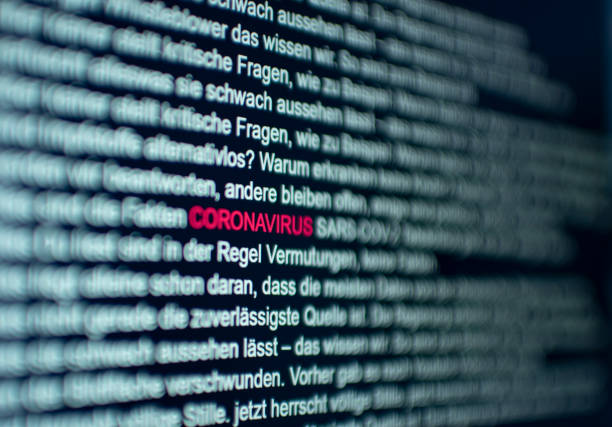The Coronavirus Quarantine Period: Navigating Isolation and Uncertainty
In December 2019, a novel coronavirus, later named SARS-CoV-2, emerged in Wuhan, China, swiftly spreading across the globe and leading to an unprecedented global pandemic. The world was faced with a new and highly contagious virus, causing the disease known as COVID-19. As governments and health organizations scrambled to control its spread, one of the most effective measures implemented was the quarantine period. This period of isolation, often referred to as quarantine or self-isolation, aimed to slow the virus's transmission by restricting the movement of individuals who might have been exposed to the virus. This article delves into the significance, challenges, and strategies for managing the coronavirus quarantine period.
Understanding the Significance:
Quarantine has historically been employed as a public health strategy to control the spread of contagious diseases. In the case of COVID-19, the quarantine period serves multiple purposes. Firstly, it helps identify individuals who might have been exposed to the virus, ensuring they don't unknowingly transmit it to others. Secondly, by keeping potentially infected individuals away from the general population, the quarantine period prevents the virus from spreading exponentially, thus alleviating the burden on healthcare systems. Lastly, it buys time for researchers and healthcare professionals to better understand the virus and develop effective treatments and vaccines.
Challenges Faced During Quarantine:
While the quarantine period is crucial for curbing the virus's spread, it brings about a unique set of challenges for individuals and communities. One of the most significant challenges is the impact on mental health. Human beings are inherently social creatures, and being isolated from friends, family, and regular social interactions can lead to feelings of loneliness, anxiety, and even depression. Additionally, financial concerns can arise, as many people are unable to work during the quarantine period, leading to economic strain.
For families, especially those with young children or elderly members, managing quarantine can be particularly demanding. Balancing work, childcare, and household responsibilities within the confines of a restricted space can lead to increased stress and tension. Moreover, the uncertainty surrounding the virus itself, including its transmission mechanisms, long-term effects, and the duration of immunity, adds to the overall anxiety during the quarantine period.
Strategies for Navigating Quarantine:
While quarantine presents its challenges, there are strategies that individuals and communities can adopt to make this period more manageable. Communication is key – staying connected with loved ones through phone calls, video chats, and social media platforms can help combat feelings of isolation. Establishing a daily routine that includes work, leisure, exercise, and relaxation can provide a sense of structure and purpose.
Engaging in activities that promote mental and emotional well-being is crucial. Meditation, yoga, reading, and pursuing hobbies can all contribute to reducing stress and anxiety. Online resources, such as virtual therapy sessions and educational webinars, can also provide support and a sense of normalcy during these uncertain times.
For families, maintaining open communication and involving all members in household responsibilities can help distribute the workload and ease tensions. Planning and preparing meals together, scheduling family game nights, and encouraging each other to pursue individual interests can foster a sense of togetherness despite the physical separation from the outside world.
Looking Ahead:
As the world continues to grapple with the ongoing challenges posed by the COVID-19 pandemic, the quarantine period remains a vital tool in slowing the virus's transmission. It is essential to recognize that while quarantine is a temporary measure, its effects can have a lasting impact on individuals' mental, emotional, and social well-being. Governments and communities must continue to provide support and resources to help individuals navigate this period.
Moreover, the pandemic has highlighted the importance of preparedness and global cooperation in responding to public health crises. Investments in healthcare infrastructure, early detection systems, and research are crucial for effectively managing and containing future outbreaks. The lessons learned from the COVID-19 pandemic can serve as a blueprint for enhancing our collective response to emerging infectious diseases.
In conclusion, the coronavirus quarantine period is a critical component of the global effort to mitigate the spread of COVID-19. While it presents challenges for individuals and communities, adopting strategies to maintain mental and emotional well-being, staying connected, and embracing a sense of routine can make the isolation period more manageable. As we look ahead, it is clear that the pandemic has reshaped the way we approach public health and underscored the importance of global collaboration in safeguarding the well-being of all.
In December 2019, a novel coronavirus, later named SARS-CoV-2, emerged in Wuhan, China, swiftly spreading across the globe and leading to an unprecedented global pandemic. The world was faced with a new and highly contagious virus, causing the disease known as COVID-19. As governments and health organizations scrambled to control its spread, one of the most effective measures implemented was the quarantine period. This period of isolation, often referred to as quarantine or self-isolation, aimed to slow the virus's transmission by restricting the movement of individuals who might have been exposed to the virus. This article delves into the significance, challenges, and strategies for managing the coronavirus quarantine period.
Understanding the Significance:
Quarantine has historically been employed as a public health strategy to control the spread of contagious diseases. In the case of COVID-19, the quarantine period serves multiple purposes. Firstly, it helps identify individuals who might have been exposed to the virus, ensuring they don't unknowingly transmit it to others. Secondly, by keeping potentially infected individuals away from the general population, the quarantine period prevents the virus from spreading exponentially, thus alleviating the burden on healthcare systems. Lastly, it buys time for researchers and healthcare professionals to better understand the virus and develop effective treatments and vaccines.
Challenges Faced During Quarantine:
While the quarantine period is crucial for curbing the virus's spread, it brings about a unique set of challenges for individuals and communities. One of the most significant challenges is the impact on mental health. Human beings are inherently social creatures, and being isolated from friends, family, and regular social interactions can lead to feelings of loneliness, anxiety, and even depression. Additionally, financial concerns can arise, as many people are unable to work during the quarantine period, leading to economic strain.
For families, especially those with young children or elderly members, managing quarantine can be particularly demanding. Balancing work, childcare, and household responsibilities within the confines of a restricted space can lead to increased stress and tension. Moreover, the uncertainty surrounding the virus itself, including its transmission mechanisms, long-term effects, and the duration of immunity, adds to the overall anxiety during the quarantine period.
Strategies for Navigating Quarantine:
While quarantine presents its challenges, there are strategies that individuals and communities can adopt to make this period more manageable. Communication is key – staying connected with loved ones through phone calls, video chats, and social media platforms can help combat feelings of isolation. Establishing a daily routine that includes work, leisure, exercise, and relaxation can provide a sense of structure and purpose.
Engaging in activities that promote mental and emotional well-being is crucial. Meditation, yoga, reading, and pursuing hobbies can all contribute to reducing stress and anxiety. Online resources, such as virtual therapy sessions and educational webinars, can also provide support and a sense of normalcy during these uncertain times.
For families, maintaining open communication and involving all members in household responsibilities can help distribute the workload and ease tensions. Planning and preparing meals together, scheduling family game nights, and encouraging each other to pursue individual interests can foster a sense of togetherness despite the physical separation from the outside world.
Looking Ahead:
As the world continues to grapple with the ongoing challenges posed by the COVID-19 pandemic, the quarantine period remains a vital tool in slowing the virus's transmission. It is essential to recognize that while quarantine is a temporary measure, its effects can have a lasting impact on individuals' mental, emotional, and social well-being. Governments and communities must continue to provide support and resources to help individuals navigate this period.
Moreover, the pandemic has highlighted the importance of preparedness and global cooperation in responding to public health crises. Investments in healthcare infrastructure, early detection systems, and research are crucial for effectively managing and containing future outbreaks. The lessons learned from the COVID-19 pandemic can serve as a blueprint for enhancing our collective response to emerging infectious diseases.
In conclusion, the coronavirus quarantine period is a critical component of the global effort to mitigate the spread of COVID-19. While it presents challenges for individuals and communities, adopting strategies to maintain mental and emotional well-being, staying connected, and embracing a sense of routine can make the isolation period more manageable. As we look ahead, it is clear that the pandemic has reshaped the way we approach public health and underscored the importance of global collaboration in safeguarding the well-being of all.




